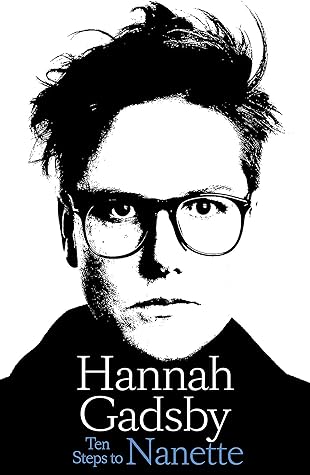More on this book
Community
Kindle Notes & Highlights
I loved it. I loved the structure of it. Every day I knew exactly where I had to be and what I had to do and if I didn’t, I was safe in the knowledge that someone would tell me.
Although I loved Pop to bits, I shared the strongest bond with Nan, who indulged me more than anyone else in the world. I think hers are the only eyes I have ever felt comfortable making contact with. They were so calm and gentle, and had a knowing twinkle that made me feel safe even when she was chuckling for reasons I didn’t entirely understand. I felt like I could tell Nan anything, and I frequently did. She would always listen to my thoughts and nod along to my stories. But the best part about our relationship was how we could sit in comfortable silence for hours on end.
I couldn’t take my eyes off their legs, wondering how they’d got such nice ones and if it was too late for mine. I also began to wonder why I was so obsessed with their legs, but I was far too deep in the closet to answer that little riddle.
Another problem I had was that the only time I could laugh at menfolk was on the rare occasion I found them genuinely funny. Their mere presence was not humorous to me in the same way it seemed to be to ‘natural’ women.
I experienced a brief window of clarity where I was able to recognise that I was depressed. I don’t think many people would have noticed the red flag that was my decision to spend the evening of my thirty-eighth birthday alone eating congealed porridge out of a pot with a wooden spoon while I thought of ways to kill myself. But fortunately, I am very astute at recognising the more nuanced expressions of depression.
Welfare systems are not built to be easy for people who are anxious about using the phone, or people who mix up dates. They are not designed for people who are bad at keeping time, filling out forms, or people who can’t easily access all the relevant bank, residential and employment details from the past five years, if they thought to keep that information at all. Welfare systems don’t accommodate for transience because welfare systems are not built to be accessible, they are built to be temples of administrative doom, because, apparently, welfare is a treasure that must be protected.
‘But it’s all part of the soup. Too late to take the onions out now.’
One of the saddest things I know is that just about everyone who chances upon an image of their younger self will experience the same grief I felt looking at myself in that photo. We don’t grieve for what we’ve lost but for what we never knew. We grieve because none of us can reconcile the beauty we can see in our past with the ugliness we were told to remember.
The lives of a vulnerable minority should never have been put into the hands of the majority in a media landscape that is all too happy to be powered by the fumes of a toxic debate.


